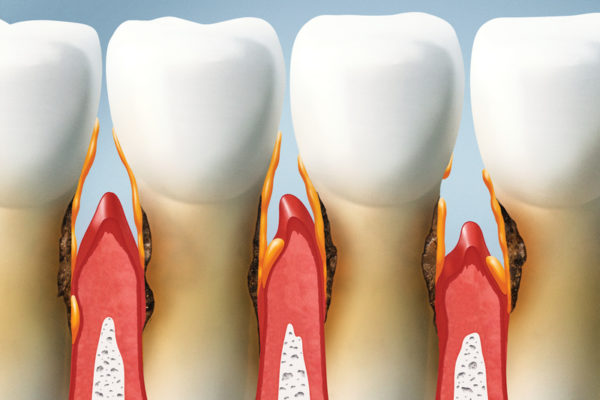
Pregnancy Gingivitis
If you’re pregnant or will become pregnant, you should know about pregnancy gingivitis. Pregnancy gingivitis occurs when your hormones change during pregnancy. These hormonal changes put you at a high risk for dental health woes like gum inflammation and gum disease.
With that being said, about 40% of women get gingivitis at some point in their pregnancy – even the most avid of flossers. During pregnancy, your body releases higher levels of progesterone. Progesterone makes yours gums more susceptible to plaque, because it encourages the growth of bacteria. During pregnancy, your body is already duress, it’s likely to not function correctly when it comes to killing off the toxic result of the plaque. So, if you already have gum disease, pregnancy will most likely make it worse.
The first signs of pregnancy gingivitis are red and inflamed gums. You might also experience pain and blood when you brush and floss your teeth. You’ll also notice that your gums will be much puffier and swollen. If your dental health is already in bad shape, this extra downfall in dental health can lead to tooth loss.
Maintaining Oral Health During Pregnancy
To keep pregnancy gingivitis at bay, you can make sure that you’re taking extra measures in your dental health regime. For one, you should make sure that your brushing and flossing at least twice a day. Another step you can take is using an antimicrobial mouthwash. This will help you make up for your pregnant body’s inability to fight off bacteria.
As always, make sure that you’re going to your dentist for professional cleanings. Your dentist will be able to assess your dental health and give you a deep cleaning to get rid of plaque buildup. You should also make sure that you’re keeping your diet healthy. During pregnancy, you might feel cravings for junk food and sugary snacks. These can be detrimental to your already compromised dental health. Make sure that you’re drinking copious amounts of water to keep your gums hydrated and wash away heartburn and nausea.
If you experience particularly bad morning sickness, vomiting can tend to erode your teeth. Keep your teeth safe by using a fluoride rinse to help re-harden your teeth. You can also support the remineralization of your teeth by eating foods that are high in calcium and phosphorous like milk, cheese, and chicken.
Gum Disease Could Cause Premature Births
There are a couple of studies that have found a correlation between gum disease and premature births. One study by The Journal of the American Dental Association found that women with ongoing gum disease were 7 times more likely to have a baby prematurely than mothers with healthy gums. Women with extensive periodontal disease experienced higher rates of premature pregnancy at 32 weeks. If you’re planning on becoming pregnant, you might want to treat your tooth loss and gum disease before becoming pregnant.
Why Pregnancy and Dental Implants Don’t Mix
Some less invasive dental work during pregnancy is safe during 14 and 20 weeks pregnant. However, if you’re thinking about getting dental implants, you should be patient and wait until after the pregnancy. Dental implants are a long process that require strong and healthy gums for optimal healing. Dental implants are a long process, and some of the steps you’ll have to take could be detrimental to your baby’s growth and development.
To properly place your dental implant, your dentist will need to take X-rays. While pregnant, it’s a good idea to avoid X-rays. When your developing fetus is still in your body, exposing them to radiation can increase the risk of birth abnormalities. For minimal discomfort, the placement of the implant will also require some form of sedation. These medications can pose risks to your fetus. Beyond harming your fetus, it might be harder for your dental implants to heal during pregnancy. For osseointegration to take place, you’ll need your gums in optimal shape with proper blood flow.
If you’re pregnant and want dental implants, you can go ahead and schedule a consultation. After the initial consultation, you’ll be able to plan for your treatment after pregnancy. Your doctor will be able to look at your tooth loss and give you an estimated cost for the treatment, so that you can plan accordingly. Your dentist will also be able to answer any questions you might have about dental implants, so that you’re comfortable and confident for your treatment.

